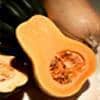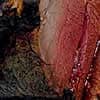Germs are everywhere. The key is to build up your immune system to fight them off so today we are going to share with you 10 strageties that can help build that immune system in to a big mean fighting machine.
 One site said, "Eat Like Peter Rabbit". I like that. Bad, unwholesome food impairs immune function. This includes avoiding French fries, soft drinks and most importantly SUGAR.
One site said, "Eat Like Peter Rabbit". I like that. Bad, unwholesome food impairs immune function. This includes avoiding French fries, soft drinks and most importantly SUGAR.The best way to build and increase the action of those action warriors, your white blood cells, is to enhance your intake of fruits, vegetables, and nuts. It's also important to get an adequate amount of good protein.
If you are a new mother and worried about your infant getting the cold or the flu. Breast milk is your babies first defense against sickness and disease.
A great way to add fruits and vegetables to your or your child's diet is smoothies. Who doesn't like a smoothie?
 Pumpkin Smoothie (adapted from Healthful Pursuit)
Pumpkin Smoothie (adapted from Healthful Pursuit)
Ingredients (1 smoothie)
- 1 cup Whole Milk
- 1/2 cup canned pumpkin (frozen)
- 1/2 banana (frozen)
- 1 tbsp raisins or 1/2 tsp maple syrup
- 1/2 tsp pure vanilla extract
- 1/4 tsp ground cinnamon
- 1/8 tsp ground ginger
- pinch ground nutmeg
- pinch ground cloves
- pinch all spice
- Whipped Topping (optional)
Instructions
- Place everything but whipped topping in the blender.
- Blend until smooth
- Pour into your favorite glass and place a couple tablespoons of coconut whipped cream on top.
- Sprinkle with cinnamon if you’d like!
According to Dr Sear's there are eight food substances that can help build your Immune System:
Vitamin C. Vitamin C tops the list of immune boosters for many reasons. There has been more research about the immune-boosting effects of Vitamin C than perhaps any other nutrient. Vitamin C supplements are inexpensive to produce, and it's available naturally in many fruits and vegetables. Also, you can buy a vitamin-C-fortified version of just about anything. Here's what the research shows about how this mighty vitamin protects your body.
 You don't have to take in massive amounts of vitamin C to boost your immune system. Around 200 milligrams a day seems to be a generally agreed-upon amount and one that can be automatically obtained by eating at least six servings of fruits and vegetables a day.
You don't have to take in massive amounts of vitamin C to boost your immune system. Around 200 milligrams a day seems to be a generally agreed-upon amount and one that can be automatically obtained by eating at least six servings of fruits and vegetables a day. Check this link out for the TOP 10 FOODS CONTAINING VITAMIN C
Vitamin E. This important antioxidant and immune booster doesn't get as much press as vitamin C, yet it's important to a healthy immune system.
 Vitamin E stimulates the production of natural killer cells, those that seek out and destroy germs and cancer cells. Vitamin E enhances the production of B-cells, the immune cells that produce antibodies that destroy bacteria. Vitamin E supplementation may also reverse some of the decline in immune response commonly seen in aging.
Vitamin E stimulates the production of natural killer cells, those that seek out and destroy germs and cancer cells. Vitamin E enhances the production of B-cells, the immune cells that produce antibodies that destroy bacteria. Vitamin E supplementation may also reverse some of the decline in immune response commonly seen in aging. You need 100-400 milligrams per day, depending on your general lifestyle. People who don't exercise, who smoke, and who consume high amounts of alcoholic beverages will need the higher dosage. Those with a more moderate lifestyle can get by with lower levels of supplementation.
Check this link out for a great list of 15 FOODS TO BOOST VITAMIN E
Carotenoids. Beta carotene increases the number of infection-fighting cells, natural killer cells, and helper T-cells, as well as being a powerful antioxidant that mops up excess free radicals that accelerate aging. Like the other "big three" antioxidants, vitamins C and E, it reduces the risk of cardiovascular disease by interfering with how the fats and cholesterol in the bloodstream oxidize to form arterial plaques. Beta carotene is the number one carotenoid. Researchers believe that it is not just beta carotene that produces all these good effects, but all the carotenoids working together. This is why getting carotenoids in food may be more cancer-protective than taking beta carotene supplements.
 To much vitamin A can be toxic to the body, so it's better to get extra beta carotene from foods and let the body naturally regulate how much of this precursor is converted to the immune-fighting vitamin A. It's highly unlikely that a person could take in enough beta carotene to produce a toxic amount of vitamin A, because when the body has enough vitamin A, it stops making it.
To much vitamin A can be toxic to the body, so it's better to get extra beta carotene from foods and let the body naturally regulate how much of this precursor is converted to the immune-fighting vitamin A. It's highly unlikely that a person could take in enough beta carotene to produce a toxic amount of vitamin A, because when the body has enough vitamin A, it stops making it.Check this link out for the TOP 10 FOODS PACKING VITAMIN A
 Bioflavenoids. A group of phytonutrients called bioflavenoids aids the immune system by protecting the cells of the body against environmental pollutants. Bioflavenoids protect the cell membranes against the pollutants trying to attach to them. Along the membrane of each cell there are microscopic parking spaces, called receptor sites. Pollutants, toxins, or germs can park here and gradually eat their way into the membrane of the cell, but when bioflavenoids fill up these parking spots there is no room for toxins to park. Bioflavenoids also reduce the cholesterol's ability to form plaques in arteries and lessen the formation of microscopic clots inside arteries, which can lead to heart attack and stroke. Studies have shown that people who eat the most bioflavenoids have less cardiovascular disease.A diet that contains a wide variety of fruits and vegetables, at least six servings per day, will help you get the bioflavenoids needed to help your immune system work in top form.
Bioflavenoids. A group of phytonutrients called bioflavenoids aids the immune system by protecting the cells of the body against environmental pollutants. Bioflavenoids protect the cell membranes against the pollutants trying to attach to them. Along the membrane of each cell there are microscopic parking spaces, called receptor sites. Pollutants, toxins, or germs can park here and gradually eat their way into the membrane of the cell, but when bioflavenoids fill up these parking spots there is no room for toxins to park. Bioflavenoids also reduce the cholesterol's ability to form plaques in arteries and lessen the formation of microscopic clots inside arteries, which can lead to heart attack and stroke. Studies have shown that people who eat the most bioflavenoids have less cardiovascular disease.A diet that contains a wide variety of fruits and vegetables, at least six servings per day, will help you get the bioflavenoids needed to help your immune system work in top form.Check this link out for the 9 FOODS RICH IN BIOFLAVENOIDS
 Zinc. This valuable mineral increases the production of white blood cells that fight infection and helps them fight more aggressively. While some studies claim that zinc supplements in the form of lozenges can lower the incidence and severity of infections, other studies have failed to show this correlation. A word of caution: too much zinc in the form of supplements (more than 75 milligrams a day) can inhibit immune function. It's safest to stick to getting zinc from your diet and aim for 15 to 25 milligrams a day.
Zinc. This valuable mineral increases the production of white blood cells that fight infection and helps them fight more aggressively. While some studies claim that zinc supplements in the form of lozenges can lower the incidence and severity of infections, other studies have failed to show this correlation. A word of caution: too much zinc in the form of supplements (more than 75 milligrams a day) can inhibit immune function. It's safest to stick to getting zinc from your diet and aim for 15 to 25 milligrams a day.Check this link out for the TOP TEN FOODS HIGH IN ZINC
 Selenium. Best food sources of selenium are tuna, red snapper, lobster, shrimp, whole grains, vegetables (depending on the selenium content of the soil they're grown in), brown rice, egg yolks, cottage cheese, chicken (white meat), sunflower seeds, garlic, Brazil nuts (2-3 a day), and lamb chops.
Selenium. Best food sources of selenium are tuna, red snapper, lobster, shrimp, whole grains, vegetables (depending on the selenium content of the soil they're grown in), brown rice, egg yolks, cottage cheese, chicken (white meat), sunflower seeds, garlic, Brazil nuts (2-3 a day), and lamb chops.Check this link out for the TOP 10 FOODS HIGH IN SELENIUM
 Omega-3 fatty acids. A study found that children taking a half teaspoon of flax oil a day experienced fewer and less severe respiratory infections and fewer days of being absent from school. The omega 3 fatty acids in flax oil and fatty fish (such as salmon, tuna, and mackerel) act as immune boosters by increasing the activity of phagocytes, the white blood cells that eat up bacteria. (This is why grandmothers insist on a daily dose of unpalatable cod liver oil.) Essential fatty acids also protect the body against damage from over-reactions to infection. One way to get more omega-3 fatty acids in your diet is to add one to three teaspoons of flax oil to a fruit and yogurt smoothie.
Omega-3 fatty acids. A study found that children taking a half teaspoon of flax oil a day experienced fewer and less severe respiratory infections and fewer days of being absent from school. The omega 3 fatty acids in flax oil and fatty fish (such as salmon, tuna, and mackerel) act as immune boosters by increasing the activity of phagocytes, the white blood cells that eat up bacteria. (This is why grandmothers insist on a daily dose of unpalatable cod liver oil.) Essential fatty acids also protect the body against damage from over-reactions to infection. One way to get more omega-3 fatty acids in your diet is to add one to three teaspoons of flax oil to a fruit and yogurt smoothie.Check this link out for the TOP TEN FOODS HIGH IN OMEGA 3'S


No comments:
Post a Comment